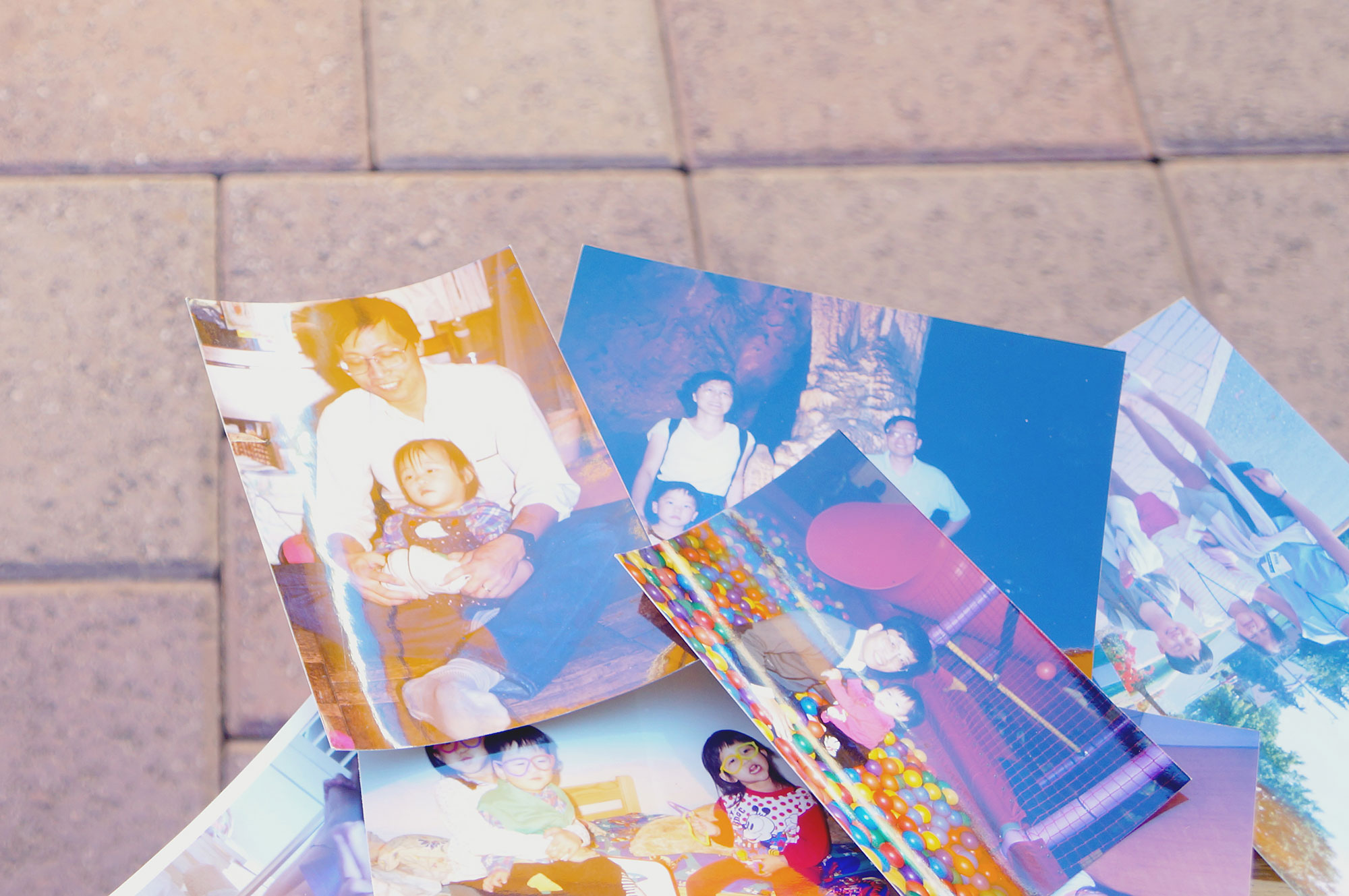
On the morning of Halloween, two days after my dad's birthday, I was pulled out of my third period math class to find my mother waiting 20 feet away from the school front office. Between her tight hug and choked sobs, I heard the news I'd been dreading — Daddy passed away.
Soon, people from church were gathered at our dinner table and praying loudly. I couldn't discern much over the ringing in my ears and tunnel vision. I don't clearly remember who was there, but I do know none of them visited again.
We received the largest Christmas present haul that year. It was the first and last time that ever happened. It seemed like a knee-jerk spasm of sympathetic apologies in the form of colorful boxes. But things quickly returned back to "normal", almost as if nothing had happened.
Things quickly returned back to “normal”, almost as if nothing had happened.
The loss
Our church hosted a memorial service for my dad on a Sunday afternoon. The slideshow and the sermon seemed perfunctory in the face of my loss. A two-minute slideshow and a song to honor 47 years of my father? It felt impersonal, forced, and even a bit insulting. People lined up at the end of the service to offer condolences, but each handshake was the same to me: self-conscious and unhelpful.
For months afterward, the church pinned a picture of my family on a bulletin board; I wasn't sure what purpose it was supposed to serve.
The whole experience left immediate effects on my family. This loss was not just a detour or a small obstacle, and we were emotionally fending for ourselves. My little brother, who was 9 years old at the time, became angry and short- tempered. My little sister, who was 11, became the topic of whispered pity in her classroom.
My mother was shattered by the loss. Watching her weight drop and hearing her cry herself to sleep at night led me to quickly realize that she was not equipped to teach me how to juggle the emotional curveballs I was dealing with. I was 14 and was not ready to be her emotional caretaker. If I could not lean on her, I would have to learn how to confront every trigger of loss threaded throughout the mundane on my own.
So I withdrew. I would sit with my knees to my chest at lunch while my fellow freshman friends laughed and talked around me. I was a taboo, an uncomfortable reminder of how helpless they felt. I was on a different path, one that was very lonely but drew me close to the "man of sorrows" who was acquainted with grief referenced in Isaiah 53:3.
I was a taboo, an uncomfortable reminder of how helpless they felt.
The aftermath
My father was a nerd. He was humorous and had a quiet nature. He loved making robots, so he had bought me a circuit board for my 12th birthday in hopes that I would share his passion for electronics. It turns out I didn't, but I appreciated the attempt.
When I lost my father, I was hyperaware of everything that "could-have-been". His most recent robot project sat on the wood table in the garage for months afterward; I noticed every interaction between fathers and daughters at church; I was keenly aware of the empty lounge chair he once occupied.
The awareness of my dad's absence grew more muted with time, but occasionally the absence was particularly loud and bothersome. The waves of awareness of his absence were triggered with every milestone. My dad wasn't there to tell me that he was proud of me at my high school or college graduation. He wasn't there to support me as I experienced my first dating relationship, or to sit with me during my first heartbreak.
The waves of awareness of his absence were triggered with every milestone.
I did not need the consolation presents I received that Christmas, nor did I need people saying, "I'm sorry for your loss", or "Let me know if you want to talk". The loss was not their fault, and I was not planning on approaching anyone of my own volition — especially since all I wanted to do was hide from their furrowed brows of pity. I simply needed the comforting presence of faithful friends.
Receiving comfort
I liken my pain to an immigrant's journey. When I try to explain my experience to someone, it's as if I am speaking a different language. As frustration spills out and chokes the words I had painstakingly put together, I find myself stripped of language and isolated from my friends. I become unable to express how I feel. I am denied a safe space where my grief is allowed to just be. I am an immigrant pioneering through the strange lands of my grief.
Dealing with grief alone as a 14-year-old was overwhelming. At a certain point, I realized I could not walk this road by myself. But how could I explain a grief that sounded like the awful creak of the bed at 3:47 a.m. as the layers of a dream dissolve in a cold sweat? Or when it felt like perpetual emptiness, apathy, and weakness at the same time?
Dealing with grief alone as a 14-year-old was overwhelming. At a certain point, I realized I could not walk this road by myself.
With a feverish desire to understand the writhing mass of emotions inside, I began putting words to my aching by identifying and acknowledging my anger, fear, and numbness. With that came a process of trial and error: if I feel this way, how do I proceed? What happens if I mope in my room versus if I reached out to this or that person? How can I express how I'm feeling to those around me?
In a book called "The Wounded Healer", Henri Nouwen walks his readers through the implications of Jesus' suffering. Articulation, he says, is the key. "He who is able to articulate his own experience can offer himself to others as a source of clarification. In this sense, he is a servant of servants, because he is the first to enter the promised but dangerous land."
"He who is able to articulate his own experience can offer himself to others as a source of clarification."
As Jesus walked the "Via Dolorosa", Latin for "Way of Suffering", the path known for His trek down to His crucifixion, He had humankind heavy on His heart. He had compassion on us, which literally means "to suffer with". I've been able to recognize that I never had to wrestle with my grief by myself; Jesus is always with me in my grief, no matter how emotionally heavy or withdrawn I feel. He suffered with me and for me. Because He is able to empathize, He is not far but indeed very near.
When I began to allow myself to be vulnerable, I noticed that there were a handful of friends who were willing to position themselves to "suffer with" me. My loss dehumanized me as someone who was unapproachable, but these friends saw past the fear of awkwardness and continued to faithfully reach out and grieve with me.
These friends saw past the fear of awkwardness and continued to faithfully reach out and grieve with me.
One particular friend taught and encouraged me to stop condemning myself for experiencing emotions. Together, we cultivated a relationship where I had the freedom to spend time with her but withdraw when needed without fearing that she would feel rejected. Other friends continued to communicate their care, regularly asking to spend time with me. I was comforted simply from hearing that they enjoyed my company and were willing to embrace me in whatever emotional state I might be in.
Grief was a vehicle for teaching me the art of allowing both my community and Jesus to enter into my pain. Likewise, I have learned how to enter into others' pain as well. I am only able to do this because Jesus empowered us with the gospel when He chose to suffer with us first; He modeled a radical community that could reflect reconciliation and self-sacrifice.
Eventually
This year will be the eighth year after that heart wrenching Halloween morning. I miss my father and I continue to grieve the regular pang of "could-have-beens". Grief is not static — it moves and changes. I've found that narratives powerfully shape the understandings of past, present, and possible experiences. Over the years, my siblings and I have used storytelling as a way to commemorate our father and share our memories of him with others.*
At first, these stories were painful to tell, just like the first few months without my dad were painful to live through. The grief never went away, but it has changed shape and even conceded to welcome joy. Granted, when my grief first encountered joy, I feared that my father's passing had become trivial to me. Eventually I learned and accepted that seemingly contradicting emotions can coexist. Because in the midst of all grief, joy, and suffering is the figure of Christ: His life, His wounds, His death, and His resurrection.
* You can read the stories Eunice and her siblings have compiled online at deardeardaddy.tumblr.com.

Eunice Ho (she/her/hers) is a proud graduate of the UCSD Ethnic Studies undergraduate program and the UCLA Teacher Education Program Ethnic Studies cohort. She honors both her ancestors who came before her and her loved ones who choose to stand alongside her in pursuit of justice, liberation, and healing. Today, she is a history teacher who uses humanizing Ethnic Studies pedagogy; as a graphic designer, she also visualizes data-driven research around educational inequity. Things that give her life include her many houseplants, reading, rock climbing, and watching thought-provoking TV shows.